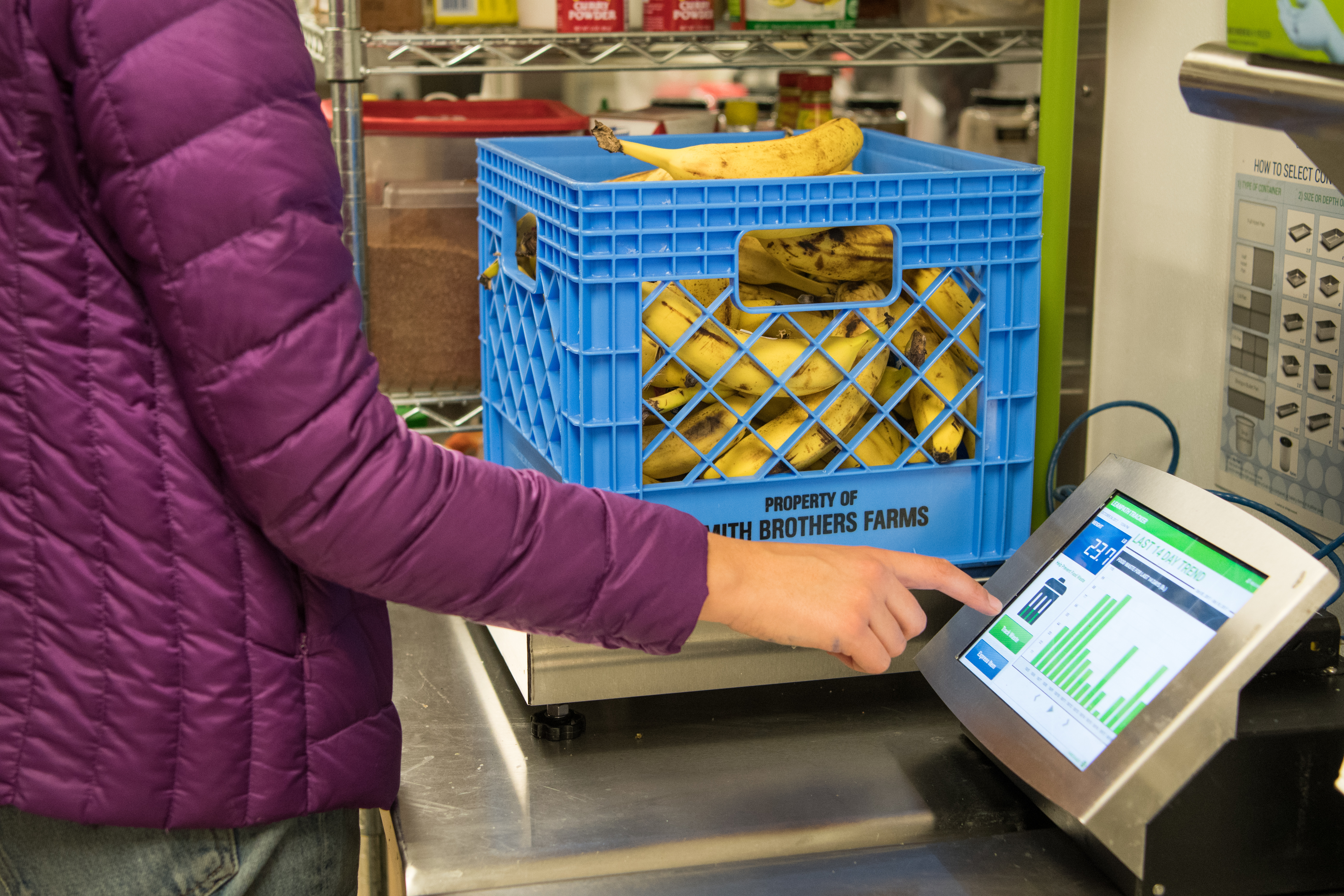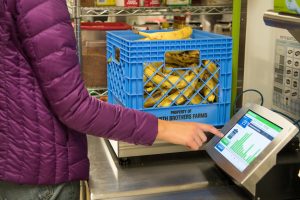
By Emily Schuelein

Using the LeanPath system, Dining Conference Services (DCS) “was able to reduce the total food waste produced in the 2016 school year by over 10,000 pounds,” the University’s website states.
DCS has used LeanPath, a food waste reduction system, since 2016, according the University’s Sustainable Dining page.
“LeanPath is a scale that takes pictures and puts together a lot of different data for us,” Mark Stewart, Purchasing Manager, said. Examples of data include spreadsheets based on how much overproduction there is and how much food is past its use-by date. The “scale will take a picture and send it to the chef and I, and we can see what station, what product … a dollar value [and a] weight amount that [the Diner is] donating to TAGRO,” Stewart said.
In 2014, the University of Puget Sound partnered with the City of Tacoma and installed three large Insinkerators in the Diner’s kitchen.
“An Insinkerator is a large, industrial-grade food waste disposer that grinds up food waste and diverts it to a City of Tacoma processing plant.” The food waste is turned into Tacoma Grow (TAGRO) products. The on-campus community garden buys back TAGRO products, according to the University’s website.
On where food at the Diner comes from, Stewart said, “a lot of our vendors have great local partnerships, whether it’s our salmon that’s off the coast of [British Columbia] or all of the farms in Puyallup valley we use. Our bakeries are all local, our coffee, I mean, you name it, the list goes on and on: Tacoma tofu, Frank’s Doughnuts.”
The main provider of the produce at the Diner is Charlie’s Produce and they are the ones that source out all of the farms. The produce mostly comes from “up and down the I-5 corridor, all of the farms like Puyallup valley and up North, Bellingham area,” Stewart said.
DCS provides food to “local charities such as the Guadalupe House and Salvation Army through our Food Salvage Program with the help of students from the Food Justice Program,” the University’s website states.
Karina Cherniske, Food Justice Coordinator, said, “the Food Justice program works with the Diner primarily by running Food Salvage. Food Salvage is when a group of student volunteers goes into the Diner, packages food that is left over from the week, and takes it to the Guadalupe House and the Tacoma Rescue Mission where it is used to feed people instead of going to waste. We typically salvage about 100 pounds of food each time!”
“Donating prepared food is really challenging because it has to be done in a timely manner … because we always worry about food safety. This program was started years ago by students. They found the Guadalupe House and set [the program] up and kept it moving,” Terry Halvorson, Director of Dining & Conference Services, said.
The garden provides herbs and produce to the Diner, according to the University’s website.
“The Puget Sound Community Garden is a student-run garden on the University of Puget Sound campus … that helps bring together members of our student body with community members in the surrounding neighborhoods.”
“As long as we are consistent in our efforts of food salvage and donating and LeanPath sustainability efforts will continue. My department is always working with the data we collect to change our order practices for the future,” Stewart said.
Dome of the University’s sustainability initiatives include the Sustainability Advisory Committee (SAC), Sustainability Services, Environmental Campus Outreach (ECO) club and the list of Top 10 Actions everyone can do to create a sustainable campus. This list includes habits such as bringing your own cup to the cafes and Diner, ordering meals for here and refilling water bottles at the tap or fountains. More information can be found on the University’s website.
